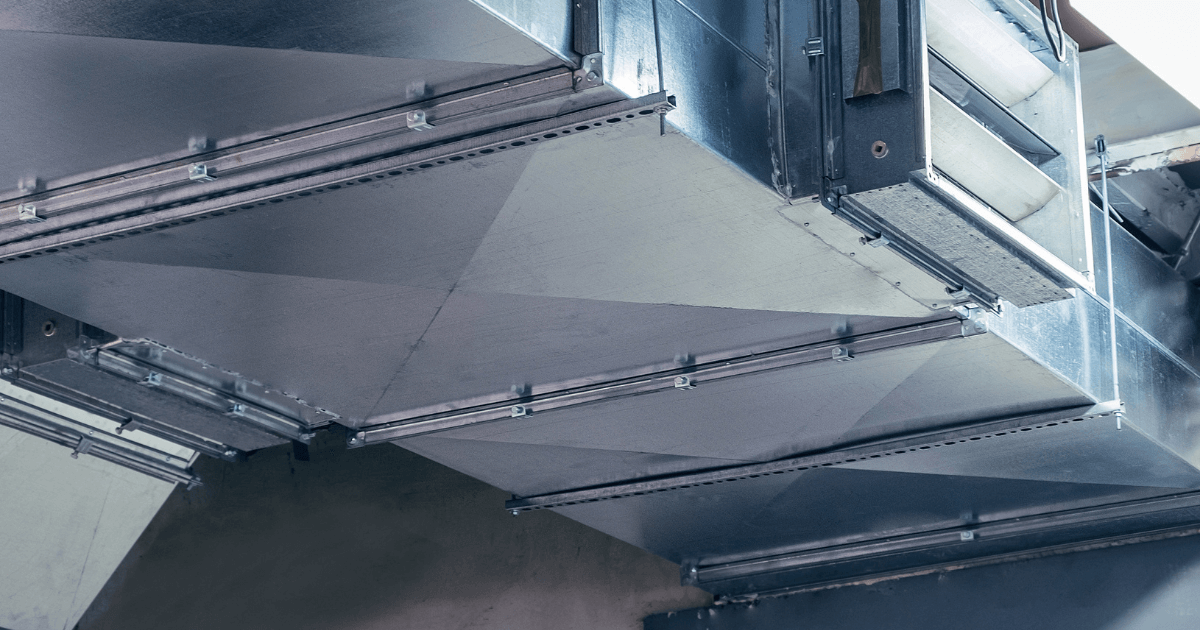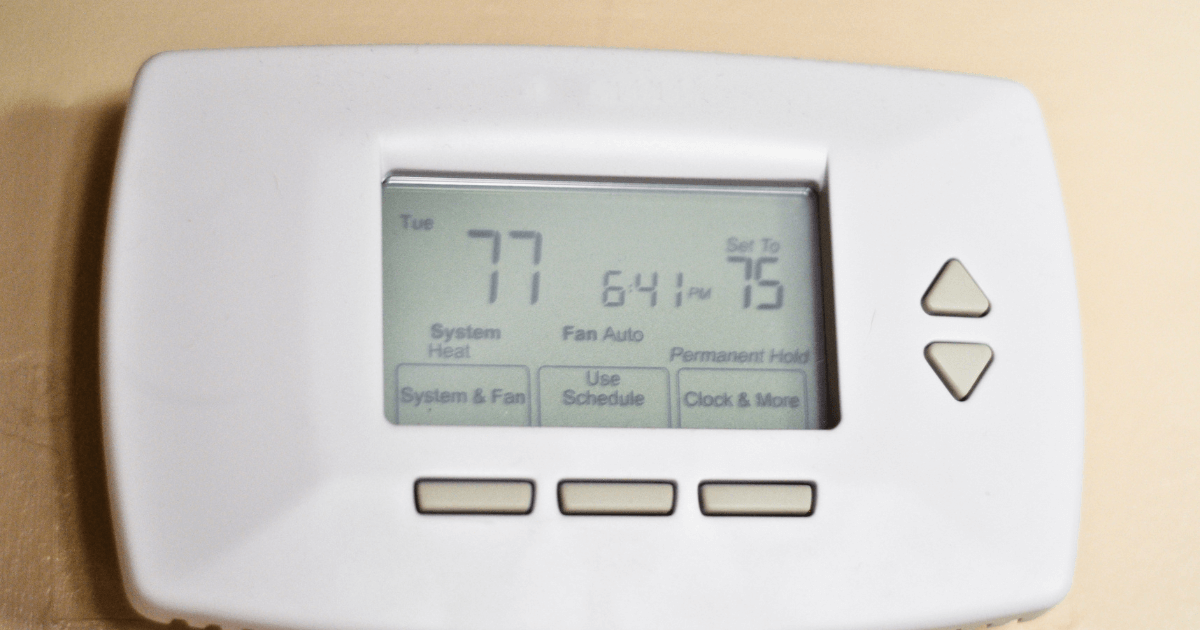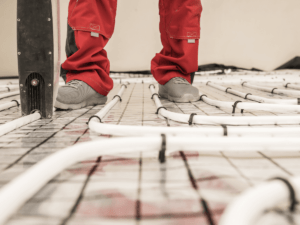Welcome to our blog post on HVAC systems! If you’ve ever wondered what exactly an HVAC system is and how it works, you’ve come to the right place.
In this article, we will demystify the acronym and break down the components and functions of an HVAC system.
Whether you’re a homeowner, renter, or simply curious about heating, ventilation, and air conditioning, this introduction will provide you with key insights into this essential system.
By the end, you’ll have a clear understanding of what is an HVAC system for and how it provides a comfortable indoor environment and maintain optimal air quality. Let’s dive in!
What is an HVAC system?
HVAC, short for Heating, Ventilation, and Air Conditioning, refers to the system that provides heating and cooling for buildings. It includes everything related to your heating and cooling system.
Although it may seem complex, understanding HVAC doesn’t have to be difficult for homeowners. Let’s simplify the basics.
HVAC systems act as complete home comfort solutions, actively heating, cooling, and improving your indoor air quality.
People often confuse HVAC with AC, but there’s a key difference. AC units solely cool your home, while HVAC systems handle heating, ventilation, and air conditioning. In fact, some HVAC systems might not even include an air conditioning unit and focus solely on heating and ventilation.
When it comes to finding the perfect HVAC units for your space, you want to ensure that you achieve the ideal temperature and air quality all year round.
An HVAC system is a comprehensive setup that involves multiple components working in harmony to provide the comfort your space deserves.
From units located both inside and outside your space to various parts that play essential roles, each component has a specific function within the system.
There are many different components that work together in order to make an HVAC system work properly, we have mentioned a few of them along with their functions:
Air Conditioner
An air conditioner will cool your space by extracting or removing heat and humidity from the inside and releasing it outside.

Heat Pump
A heat pump can swing both ways it can heat and cool your space so don’t fall for the name.

Heat pumps work by using electricity and are responsible for absorbing the heat by refrigerant and transferring it outside the space.
As I said above they can reverse the flow of refrigerant depending on if you need it to heat the space or to cool the space.
Furnace
Furnaces generate heat by burning natural gas or liquefied petroleum gas.
The system actively distributes warmth throughout your space, raising the overall temperature.

Air Handler
In order to fulfill the needs of your desired temperature in every room of your space, the air handlers come in to circulate the desired heated or cooled air generated.

Ductwork
Ductwork or ducts are interconnected pipes that are responsible for carrying the hot or cool air from the furnace or air conditioner.

Thermostat
A thermostat is also known as a control panel, it is responsible for controlling your indoor temperature.

You can change and set your desired temperature by thermostat and it will send the selected command to the other components to provide warmer or cooler air.
For an effective HVAC system, combine these key components: air conditioner, heater, air handler, ductwork, thermostat, and optionally, a humidifier or air purifier.
Once an HVAC system is installed in your space, you can control the temperature by using your thermostat. Then the fresh heated or cooled air will be distributed throughout your space with the assistance of ductwork or an air handler.
The thermostat sends the commands to the HVAC units according to your need of whether cooling or heating. In the case of a ductless system in your space, refrigerant lines will aid in the movement of air through the system.
Your HVAC systems might consume either gas or electricity, mainly electricity has mostly opted in order to make an HVAC system work but might use gas or oil for fulfilling the heating needs.
How Much is a New HVAC System?
Based on our findings, the average cost of a new HVAC system is around $7,000 to $7,500.
However, if you’re curious about the lowest and highest price ranges, the lowest you can find starts from $5,000, while the highest can go up to $12,500 or even more.
The actual cost will vary based on factors such as your preferences, system size, chosen brand, and the specific heating or cooling requirements of your space.
So, when considering a new HVAC system, it’s important to take these factors into account to determine the best fit for your needs and budget.
How Much Does it Cost to Replace HVAC System?
The cost of Replacing an HVAC System hangs upon the size of the unit and space, and the amount of ductwork required.
According to our research fully replacing an HVAC system costs around $5,000 to $10,000. Typically most of the time it will cost $25 to $60 per square foot, roughly on average $7,000 to $7,500 are charged for the replacement.
How to Tell What Kind of HVAC System You Have?
When it comes to figuring out what kind of HVAC system you have, here are some options to consider.
Furnaces burn natural gas, propane, oil, or electricity to generate heat. Install them typically in closets or basements for optimal performance.
They distribute the heated air throughout your space via ductwork.
Heat pumps are great for moderate climates because they can provide both heating and cooling by extracting and transferring heat between different areas. They consist of indoor and outdoor components, and you can spot them near the condensing units with labeled brass pipes or on the outdoor unit.
Geothermal heat pumps harness the earth’s temperature for efficient heating and cooling, but they have a higher initial cost and can be susceptible to disruptions caused by natural disasters or landscaping changes.
Boilers work by combining with a furnace and using a vessel to convert water into steam, providing warmth using electricity, natural gas, propane, or oil. Equipped with a pressure gauge, they distribute heat through various means, such as baseboard radiators, radiant heat floor systems, or coils.
On the other hand, package units are typically located on a slab or roof, combining heating and cooling components within a single cabinet.
They distribute air throughout your space via ductwork or ducts. By considering these distinctive characteristics, you can accurately identify the type of HVAC system in your home.
Are HVAC Systems Covered by Insurance?
Whether or not HVAC systems are covered by insurance depends on the specific circumstances and insurance policy in question.
On average an HVAC system consumer’s insurance policies typically do not cover the cost of repairing or replacing HVAC systems due to normal wear and tear or other issues over time.
However, if by any chance the damage to the HVAC system can result in any kind of risk such as fire, lightning, or a severe storm, then the residence coverage is eligible for the consumer’s insurance policy.
It is important to review the terms and conditions of your insurance policy or consult with your insurance provider to understand the extent of coverage for your HVAC system.
Additionally, some insurance companies offer optional coverage specifically for HVAC systems, known as equipment breakdown coverage or home warranty plans, which can provide financial protection against unexpected mechanical failures or breakdowns of the HVAC system.
Final Thoughts
In conclusion, understanding what an HVAC system is and how it works is essential for every homeowner.
We have explored the key components and functions of HVAC systems, including furnaces, heat pumps, geothermal heat pumps, boilers, and package units.
By knowing what is an HVAC system, their different types and their characteristics, you can better identify the HVAC system in your home.
Remember, furnaces provide heat through burning fuel, heat pumps offer both heating and cooling capabilities, geothermal heat pumps utilize the earth’s temperature, boilers generate steam for warmth, and package units combine heating and cooling components in one cabinet.
These systems play a vital role in maintaining comfort and air quality in your living space. Whether you’re in need of repairs, upgrades, or simply want to maximize energy efficiency, consulting with an HVAC professional is always a wise decision.







